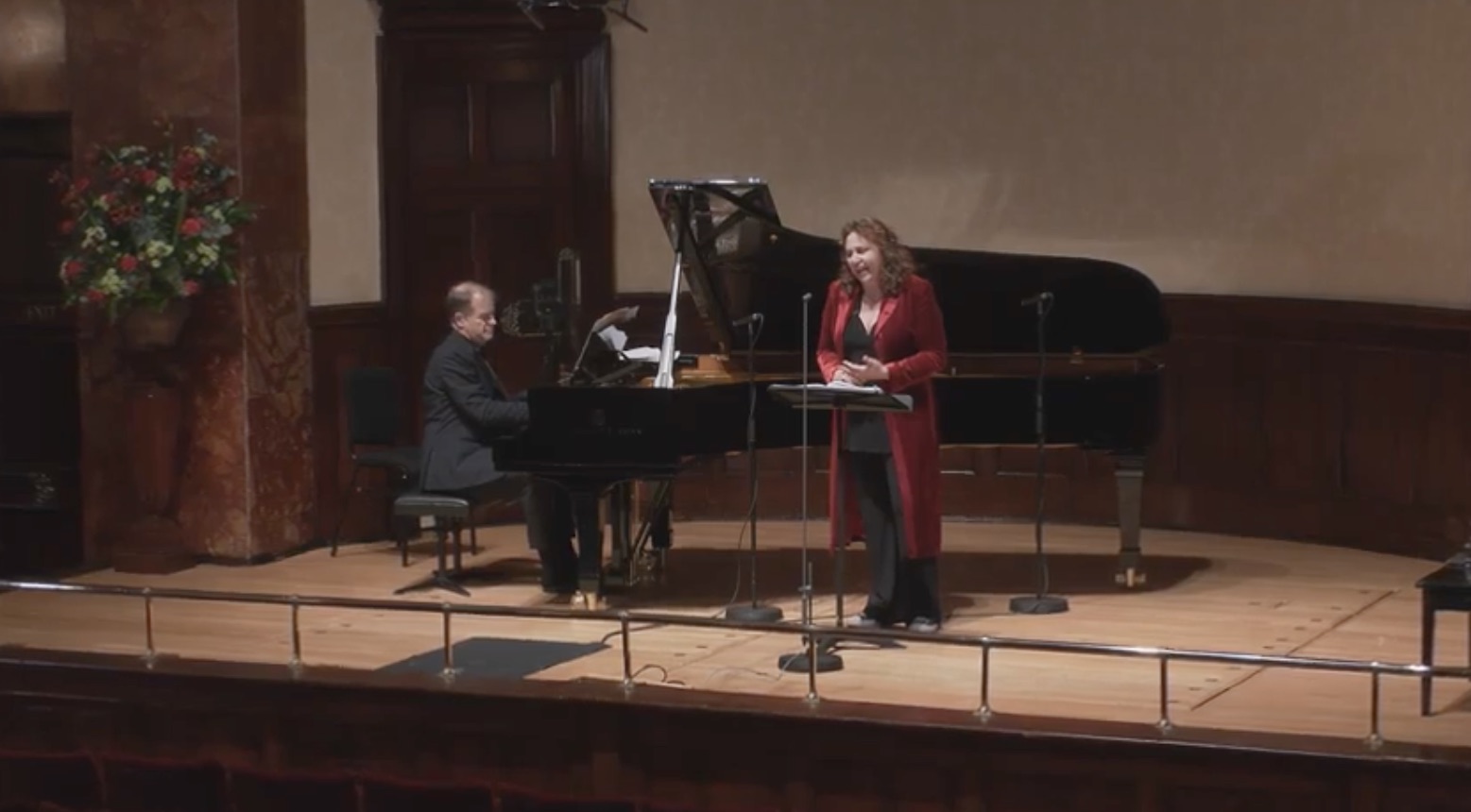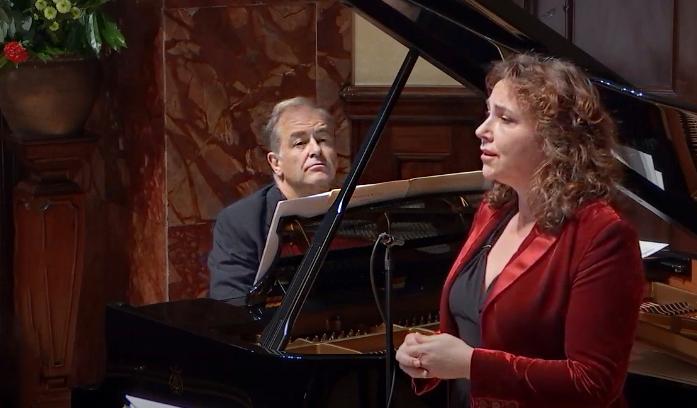It began as a Christmas present in the bleakest of winters. In December 1939, as war engulfed Europe, Bertolt Brecht sent a poem to the exiled Kurt Weill in New York. Weill set it as a bittersweet gift for his wife Lotte Lenya. “Nannas Lied” – the song of a an ageing, resilient, seen-it-all prostitute – tells us (via Brecht’s nod to François Villon) that the worst as well as the best never lasts forever: “Where are the tears we cried last night? Where are the snows of yesteryear?” Yesterday, in the deserted Wigmore Hall, Christine Rice drew deep from their mingled stream of fury, regret and tenderness as she brought five Weill songs to pulsating life to close her recital.
This was a lunchtime hour that spanned a rainbow arc of emotion, with each segment lit up by Rice’s full-spectrum mezzo – imperious and convincing across her range. Still, the darker colours did predominate. Even the encore, the Elizabethan “Nurse’s Song” from Britten’s A Charm of Lullabies, acquired – at least I thought – a touch of horror-movie menace behind its cradle gentleness.
Rice had begun with Britten – the five early, but later reworked, songs of Tit for Tat – before moving through the scary Russian forest of Mussorgsky’s Songs and Dances of Death and into the modern, urban angst of Brecht and Weill in the age of the dictators. Britten’s light revision of his teenage mini-cycle shows how smartly even the fledgling composer could fix and ride the mood of poetic words: in this case, Walter De La Mare’s other-worldly pastoral lyrics. Accompanying Rice, the ever-excellent Julius Drake gave us the spare, ironic commentary of Britten’s piano parts, while Rice sought out the bluesy edge of “A Song of Enchantment” and the shivery sadness of “Autumn” and “Silver”. Britten really cracks the whip with “Tit for Tat” itself, a salutary tale of Nature’s imagined revenge on the cruel poacher Tom Noddy who “trod like a murderer through the green woods”.
 The queenly wrath Rice summoned in this number carried over into the vocal demands of Mussorgsky’s quartet of memento mori songs, in which Death spoils the fun of a little child, a lovesick maiden, a drunken peasant and – in the end – everyone who expires on the grim battlefield he commands. The sequence asked for, and received, all of Rice’s array of skills as a singing actor, from the foreboding and vulnerability of “Lullaby” to the mighty blast of terror that shatters the lovers’ longing in “Serenade”. Gentle or fierce, her voice compels, and Mussorgsky’s cycle – generally a vehicle for the bass/baritone crew – lavishly showcased its scope.
The queenly wrath Rice summoned in this number carried over into the vocal demands of Mussorgsky’s quartet of memento mori songs, in which Death spoils the fun of a little child, a lovesick maiden, a drunken peasant and – in the end – everyone who expires on the grim battlefield he commands. The sequence asked for, and received, all of Rice’s array of skills as a singing actor, from the foreboding and vulnerability of “Lullaby” to the mighty blast of terror that shatters the lovers’ longing in “Serenade”. Gentle or fierce, her voice compels, and Mussorgsky’s cycle – generally a vehicle for the bass/baritone crew – lavishly showcased its scope.
Drake’s alert and responsive playing both set the tone and extended the palette of each richly coloured number. The woodland horrors of “Trepak” lurch from a tipsy danse macabre into a quietly chilling fade-out, while “The Field Marshal” let Rice aim her heaviest artillery at feeble humanity struck down in the losing battle of life. The work ends in a sort of annihilating glee – formidably sung – that really makes the blood run cold.
This is a huge, rich voice that can soar, or rather float, across the toughest challenges. But Lotte Lenya she ain’t, and – as when other operatic big guns turn their aim on Weill – the sheer firepower deployed can sometimes swamp the spiky, ragged ironies these songs express. That said, Rice caught and followed their vein of bruised sensuality beautifully, whether in “Nannas Lied” itself or the forlorn melancholy of “Es Regnet” (with lyrics by Jean Cocteau). She topped and tailed this group with Brecht-Weill at their angry, pointed and satirical finest. First came the sardonic rage of the “Song of the Nazi Soldier’s Wife”, who collects fancy gifts sent from plundered European capitals – then a widow’s veil from the Russian steppe. “Wie lange noch?” (“How much longer?”) made for a skin-prickling send-off. The lover’s despair at the lying, abusive man who “promised me blue skies” becomes Germany’s fatigued disgust at the sham seductions of the Führer himself. Here Rice’s flair for megawatt intensity truly shone as she put the faithless swindler – Hitler himself – in the dock. “Wie lange noch?” indeed. This weary December, the question remains.















Add comment